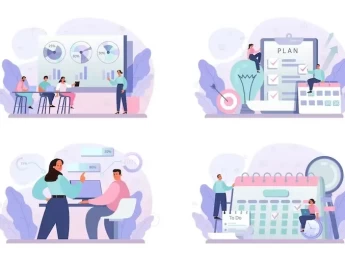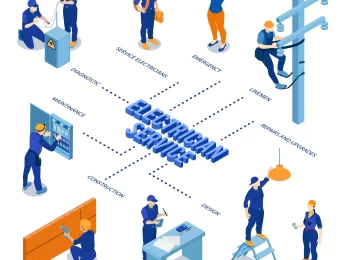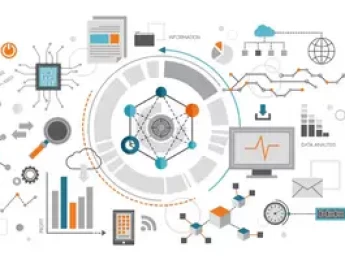Leaders in any organisation, industry, or public body need an approach to managing teams that is effective in achieving their goals and ethical. The principles behind these methods are universal in their effectiveness.
Managers constantly face new challenges in an ever-changing world, and by applying a range of management principles, they will increase the effectiveness of their actions and the actions of their teams. Studies have shown that the results of highly effective people, including the quality of their work, productivity, and future planning, are directly balanced with how much they are motivated and care about achieving these goals. A leader who isn’t motivated to achieve the end goal will lead a team of less effective people.
By applying the three subsets of established principles to manage people effectively, plus creating an effective review mechanism, any team will achieve and even exceed their goals. Practising these ideas will create interdependence in the team and enhance cooperation. Managers and leaders should always use tried and tested techniques to motivate their team by being a great role model, practising the best communication techniques, and collaborating with each team to develop a highly effective workforce and improve the department's quality, productivity, and overall output.
Upon completion of this course, participants will be able to:
- Be proactive in using planning techniques.
- Develop and use cooperation within the team to achieve high Performance.
- Discuss effective collaboration techniques.
- Use improved ways to communicate with others.
- Solve problems through interaction within the team.
- Gain self-awareness skills.
- Understand the importance of emotional comfort.
- Be confident and effective leaders in the organisation.
This course is designed for anyone with management or leadership responsibilities who wishes to understand modern concepts of motivation and achievement. It would be most beneficial for:
- Operations Managers
- Directors
- Business Owners
- Team Leaders
- Supervisors
- HR Personnel
- Developing Managers
- Planning Managers
- Project Managers
- Professionals who want to improve their management and leadership skills
- Senior-level management to improve decision-making
- Leaders and managers wanting to achieve higher performance
- Managers wishing to stay up to date with modern leadership concepts
This course uses various adult learning techniques to give the participants a full understanding of management concepts. It aims to provide participants with a scheme for improvement using powerful techniques based on the principles of the “Seven Habits.”
Based on feedback and motivational techniques, participants will experience presentations and group exercises to determine the best ways forward within their organisation. They will be empowered to introduce these new concepts to their work colleagues and participate in active role-playing sessions to gain buy-in for new projects and develop active listening skills.
Day 5 of each course is reserved for a Q&A session, which may occur off-site. For 10-day courses, this also applies to day 10
Section 1: Managing Proactively
- Update leadership skills to use with the new generation.
- Learn to have a proactive approach and attitude.
- Proactively develop relations with team members.
- Ways of managing a new team of fresh employees.
- Communicate at all levels in the organisation.
- Making people feel responsible for their actions.
- How to get the best from employees with positive emotional support.
Section 2: Begin with the End in Mind
- Focusing on things we can control.
- Developing measures of objectives and achievement.
- Creating results records and building your reputation.
- How do you want people to see you?
- Before acting, think it through.
- Consider all ideas, even if they are not your own.
- Make your personal mission statement.
- Effective, not only efficient.
Section 3: First Things First, Important Versus Urgent
- Set and maintain goals and objectives.
- Have clear priorities and expectations.
- Have measurements of success.
- How to delegate tasks.
- Give constructive feedback.
- Regular project and team meetings.
- Pitfalls when managing projects and people to avoid.
- How to be a team leader.
Section 4: Think Win-Win, Collaboration, & Negotiation
- Forms of negotiation behaviour.
- Resolving differences using the 5 modes of effective thinking.
- How to resolve differences.
- Overseeing a negotiation.
- Having a strategy for agreement.
- Understanding negotiating techniques.
- Motivating team members toward a Win-Win attitude.
- Negotiate with a checklist and provide a summary.
Section 5: First Understand, Then Be Understood
- Dealing with challenging conversations.
- Handling conflict within the team.
- Learning how to delegate, direct and support.
- Methods to compare cause and effect.
- Empathetic listening to understand the individual.
- Working out solutions everyone can accept.
- How to give a message, in words, body language, and tone of voice.
Section 6: Unlocking People's Potential Through Synergy
- Synergy, what is it, and what is its importance?
- Find ways to help employees reach their potential.
- Have a system to evaluate and review performance.
- Identify and form a personal development plan.
- Encourage self-resolution of tasks and interpersonal problems.
- Cooperation between 2 or more employees for a performance-based culture- synergy.
Section 7: Sharpen The Saw
- What does this mean?
- Improve your presentations for greater influence and personal power.
- Form a self-development action plan.
- Deal with stress and become more resilient.
- How to remain focused and productive.
- Improve your self-awareness.
- Create a support network for mentoring and coaching.
Upon successful completion of this training course, delegates will be awarded a Holistique Training Certificate of Completion. For those who attend and complete the online training course, a Holistique Training e-Certificate will be provided.
Holistique Training Certificates are accredited by the British Assessment Council (BAC) and The CPD Certification Service (CPD), and are certified under ISO 9001, ISO 21001, and ISO 29993 standards.
CPD credits for this course are granted by our Certificates and will be reflected on the Holistique Training Certificate of Completion. In accordance with the standards of The CPD Certification Service, one CPD credit is awarded per hour of course attendance. A maximum of 50 CPD credits can be claimed for any single course we currently offer.
- Course Code MG2-129
- Course Format Classroom, Online,
- Duration 5 days













